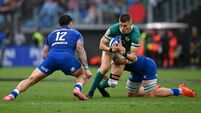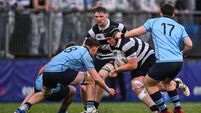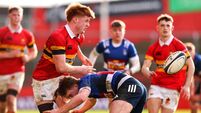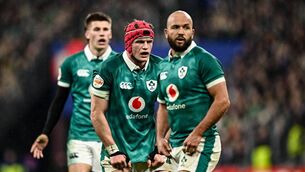Planning to stay at summit
Men like John Langford, Jim Williams and Trevor Halstead have all played defining roles in the side’s tortuous journey to the top, but it was the ‘club’ atmosphere fostered by servants like Anthony Foley, Mick Galwey and Peter Clohessy that has been the central driving force to the weekend’s victory.
That, as much as anything, has contributed to Munster’s famed X-factor and Fitzgerald is adamant that it won’t change in the years to come.















